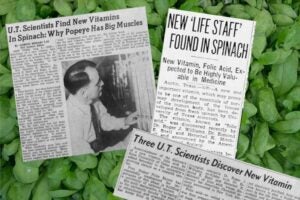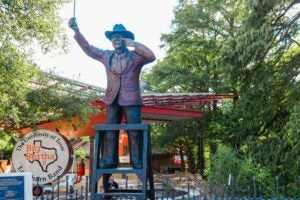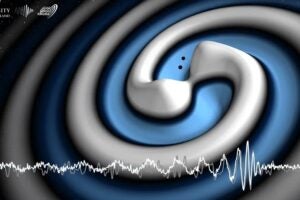AUSTIN, Texas—There is a great deal of truth to the words “use it or lose it,” says a University of Texas at Austin researcher who begins a $2.4-million study next month on improving everyday memory in at-risk elderly.
Eighty percent of all older adults have day-to-day concerns about their memory, said Dr. Graham McDougall, associate professor of nursing. His study aims to determine whether memory training intervention affects performance. The five-year research project is funded by the National Institute on Aging of the National Institutes of Health.
|
||
| Photo by Alex Labry | ||
|
McDougall gives a memory performance test in Austin. |
“The study will address a major concern of aging and a public health problem in the United States and throughout the world,” McDougall said.
Recruitment of the first class of participants for the study begins Jan. 7, 2002. Over the five years, approximately 350 participants will be recruited. Older adults at-risk for memory loss is defined as those who are 65 years of age and older, live alone, worry a great deal and have anxiety or depression. At particular high risk are those older adults who recently have suffered the death of a spouse or who are experiencing chronic illness.
Participants will be chosen from the Austin area and will be placed into two groups: One receiving the memory classes and a comparison group receiving health promotion classes. The health promotion classes will include sessions on consumer fraud, alternative medicine, drug interactions, exercise, nutrition, maintaining relationships and Web sites for seniors.
The Senior WISE (Wisdom is Simply Exploration) Project will follow participants for two years and two months. Most of the testing will be done in the first four to six months.
“Older adults are capable of improving their memory, but whether a program like this can assist them to improve or maintain their instrumental activities of daily living is not known,” McDougall said.
Most senior adults want to live independently in the community for as long as possible, and memory loss is one of the factors that make them at high risk for assisted living, said McDougall, adding that prospective memory — or remembering to do things — is especially important for maintaining independence.
“Education and cognitively demanding environments are considered important means of remaining mentally fit,” said McDougall, who has studied memory loss for 10 years.
Memory improvement strategies will be taught in a series of eight class sessions, and learning will be reinforced through booster sessions strategically placed to enhance what participants have learned.
“There are several externally derived memory strategies, like keeping a calendar, writing a list or asking someone to remind you of something,” McDougall said. “But we want older adults to learn more internal memory strategies, such as using association or ‘chunking’ — grouping things together.”
McDougall and his collaborators will collect data on five occasions with face-to-face interviews over 26 months.
The university research team also will study the effects of the program on memory self-efficacy (confidence), anxiety, depression, memory performance and instrumental activities of daily living. How positively or negatively people perceive their memory skills strongly influences how well they can use these abilities, McDougall said. “We know that the more confidence people have in their memory function the better they perform on memory tasks, and when they have strategies to help them think more positively about their memory skills, the better they perform.”
As we get older, we tend to lose confidence in our ability to remember, McDougall said. “We forget a familiar name or face and think we’re ‘losing it.’ We set out to do something, forget what it was, and wonder if we have just witnessed an early hint of dementia.” Just being a participant in the study will help boost confidence, McDougall said. “It helps to see that other people like yourself have similar concerns. You realize you are not alone.”
Depression, too, can affect memory and must be treated, McDougall said. Many seniors who are depressed believe they have less capacity to remember and that their memory is declining, he said.
Throughout the study, participants will be tested to see if there is an enhancement in how they feel about themselves, and more specifically, their memory efficacy. “We expect to see an increase in memory performance scores after individuals attend the eight classes,” said McDougall.
As baby boomers — the 80 million Americans born between 1946 and 1964 — age, the questions surrounding memory loss will continue to be a topic, McDougall said. In fact, he is considering lowering the age limit in his next study.
“For the next one we may even drop it to 45. We’ve been getting a lot of feedback from people asking why do the participants have to be 65,” he said.
For more information about the study, or to volunteer, call the Senior WISE hotline at (512) 471-8208.




